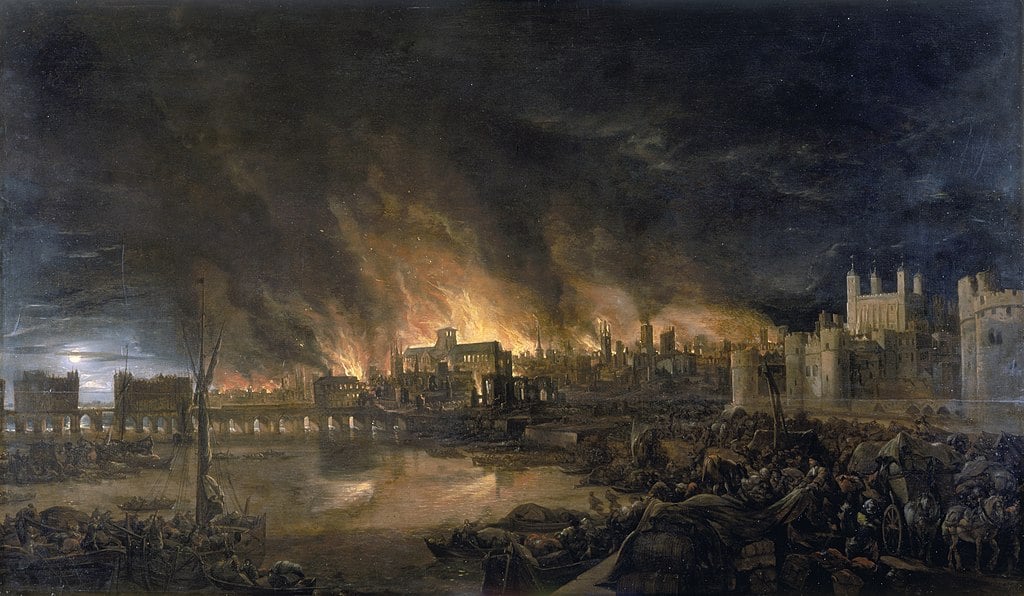Ohh, great fun, I once read up on that fire while writing a small text on fire safety in cities of the Early Modern Period. The 1666 fire was certainly unprecedented in size looking at the last few hundred years before it, but smaller fires were rather common, leading to a generally well prepared population. I'd wager that this led to the low death count, and the premature dismissal of the fire to the tune of "A woman could piss it out".
In the end, however, the fire was stopped by demolishing the wooden houses next to the active fire, preventing further spread to even more parts of the city. Hooks for breaking down wooden walls were common by then, explosives were used for that as well. I recommend this paper for deeper reading on the fire itself.
Furthermore, by ~1700, there are multiple detailled fire policies of cities written down, giving great insight into the particularities of fire fighting. In the lawbook of the city I looked at for my paper, every house was forced to stash one bucket of water, and help out with that bucket if a house in their street was on fire. Things like distribution of water sprayers in the case of emergency to the population was listed, as were monetary rewards to the first people extinguishing the fire. This is the fire policy which I looked at, it's in german, but well worth a read if you are able to.
Edit: Before I forget, here's a paper regarding the rebuilding of London after 1666. There were four plans after only a few days of the fire happening!
